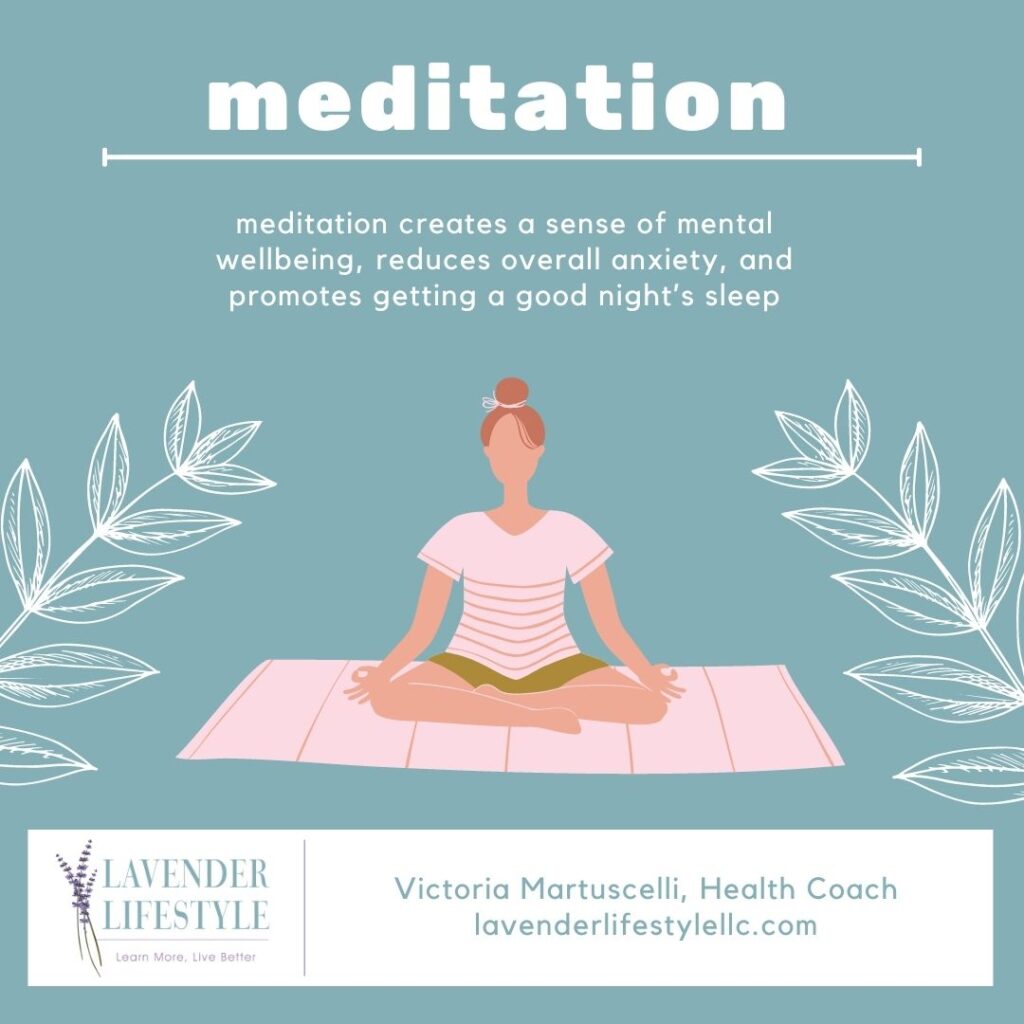
Mental health conditions are prevalent worldwide. According to the World Health Organization (WHO), about 264 million people across the globe suffer from mental disorders, including anxiety and sleep problems.
Although anxiety is a massive problem that weighs heavily on people, learning to understand and observe your anxious feelings can improve your quality of life. It is crucial to heighten your sense of inner peace, calmness, and contentment.
The most common anxiety symptoms are feelings of worry, nervousness, panic, fear, and doom. Some people have fixations on past events and future ideas, while others feel irritability, agitation, and except worst-case scenarios.
In addition, challenges falling asleep, difficulty concentrating, inability to regulate emotions, and panic attacks are other anxiety symptoms. Physical anxiety appears as digestive issues, sweating, dizziness, racing heart, frequent urination, insomnia, muscle tightness, shaking, trembling, and shortness of breath.
Meditation is an integral part of the holistic health approach, allowing people to improve their mental health and mitigate the risk of worsening anxiety and sleep disorders. Today’s article will answer: How Meditation helps Anxiety, Sleep, and Changes Your Brain. Read on!
How Meditation Helps to Manage Anxiety and Sleep
Meditation, such as mindfulness, provides you with essential tools to observe your present moment reality and gain clarity to put your anxious feeling in a new light. Embracing Meditation is an excellent way to manage anxiety in a healthy way. Here is how:
Reconnects You to the Present Moment
While your thoughts about the past, present, or future seem too real at times, the more you observe the present moment, the easier it becomes to avoid past and future stories. So, this puts away the weight of anxious feelings and streamlines your mental capabilities. Remember, Meditation is all about staying in the present moment and letting go of the past and future stories.
Reduces Your Stress Response
Meditation, or mindfulness, enables your brain to move out of the “fight and flight” response and stay in the “rest and digest” system. Keep in mind that this system is an integral part of your parasympathetic nervous system that slows your heart rate and eases your mind. All this translates to creating a sense of mental wellbeing, reducing overall anxiety, and promoting a good night’s sleep.
Helps to Retrain the Brain
Habitual thoughts, feelings, emotions, and beliefs are usually strong because neural pathways in your brain fire them automatically based on your past. That way, you accept your feelings and thoughts as truth over the course of your life.
However, mindfulness meditation can streamline your neural pathways and help you gain control of your thoughts. It rewires your brain by creating new neural pathways. During your meditation practice, you harness thoughts, feelings, and beliefs that inspire happiness, tranquility, and wellbeing.
Improves Mind-Body Awareness
Meditation is a part of a holistic health approach that connects your mind, body, and spirit. Not only does Meditation open your chakras, but it also improves mind-body awareness and creates a sense of overall wellbeing.
When you deepen your physical body awareness, you encourage relaxation. For example, this involves releasing contraction in your gut/stomach or tightness in your forehead musculoskeletal structures.
As a result, you achieve peace of mind by understanding how to intertwine your mind, body, and spirit. So this reduces anxiety and panic attacks, release pressure on your muscles, and promote peace, calmness, and tranquility.
Shifts Your Self-Perception
Regularly practicing Meditation can shift your self-perception and bring more positivity. Through mindfulness, you can shift the ideas you hold about yourself. A growing body of research evidence shows that Meditation encourages positive self-esteem and promotes self-compassion.
When you observe your inner experience with self-compassion and self-realization, you reduce the tension experienced when unpleasant situations arise. In addition, Meditation enables you to take stock of your thoughts, feelings, and physical sensations more transparently and vividly. That way, you see yourself in a more honest light.
Helpful Meditation Exercises
Various meditation exercises and mindfulness practices can improve your thoughts and feeling moving through your brain cells. However, some of the best and proven methods are:

Avoid the “Perfection” Mindset
People aiming for perfection give in a lost cause and prevent themselves from maintaining a mindful mindset. Keep in mind that mindfulness is inversely proportional to the feelings of perfectionism.
Because Meditation does not view specific experiences as “right” or “wrong,” it is crucial to let go of your desire to achieve perfection in your practice. That way, you will have peace of mind and strengthen your mindset.
Practice Non-Judgement
Practicing non-judgment is essential when developing a meditation practice to manage your brain functions, reduce anxiety, and promote a good night’s sleep. Non-judgement is the foundation of mindfulness meditation, allowing you to open up to your experiences.
Instead of denying or invalidating your thoughts and feelings, you must come face-to-face to your problems, including anxious feelings. You must give your emotions some space to breathe. That way, you can release negative feelings and stay positive to improve your quality of life.
Emotional Awareness Meditation
Enhancing your emotional awareness is one of the most crucial skills to optimize your brain processes. You can find a wide range of self-guided meditations and choose the one that best fits your needs.
Remember, this will help you know your emotions in a new manner. For example, when strong feelings/emotions arise, you don’t take a moment of pause to determine what is happening. Self-guided meditation and mindfulness practices allow you to focus on your physiological sensations associated with stress or anxiety.
Emotional awareness meditation brings the inner courage to witness the feelings/emotions passing through you. You can process your feelings and allow them to pass. Therefore, processing your feelings and keeping them at bay is the epitome of emotional awareness. Follow the steps given below to improve your emotional awareness:
- Set an intention or objective
- Align your body/mind and feel the energy
- Listen to your body and breath
- Immerse yourself in emotions and feelings
- Mitigate the negative ones
- Find happiness and joy by focusing on the positive ones
Abdominal Breathing
Abdominal breathing, also known as deep breathing, is an excellent exercise to increase oxygenated blood flow to your brain. As a result, the neurons in your brain suppress cortisol, a hormone that causes stress and anxiety, and release serotonin, dopamine, endorphins, and melatonin.
Serotonin and dopamine enhance your mood and bring feelings of joy and happiness. Endorphins release pressure on your muscles and reduce painful sensations. Melatonin promotes a good night’s sleep by relaxing your muscles and optimizing your brain’s circadian rhythm.
Final Words
Meditation connects your body, mind, and soul. It allows your mind to break away from harmful thoughts and encourages your brain to focus on positive thoughts. That way, you can reflect on your day-to-day problems and develop effective strategies to overcome them. Regular Meditation is directly proportional to reduced anxiety. Follow the tips and techniques above to get the most out of your practice. Until Next Time!

